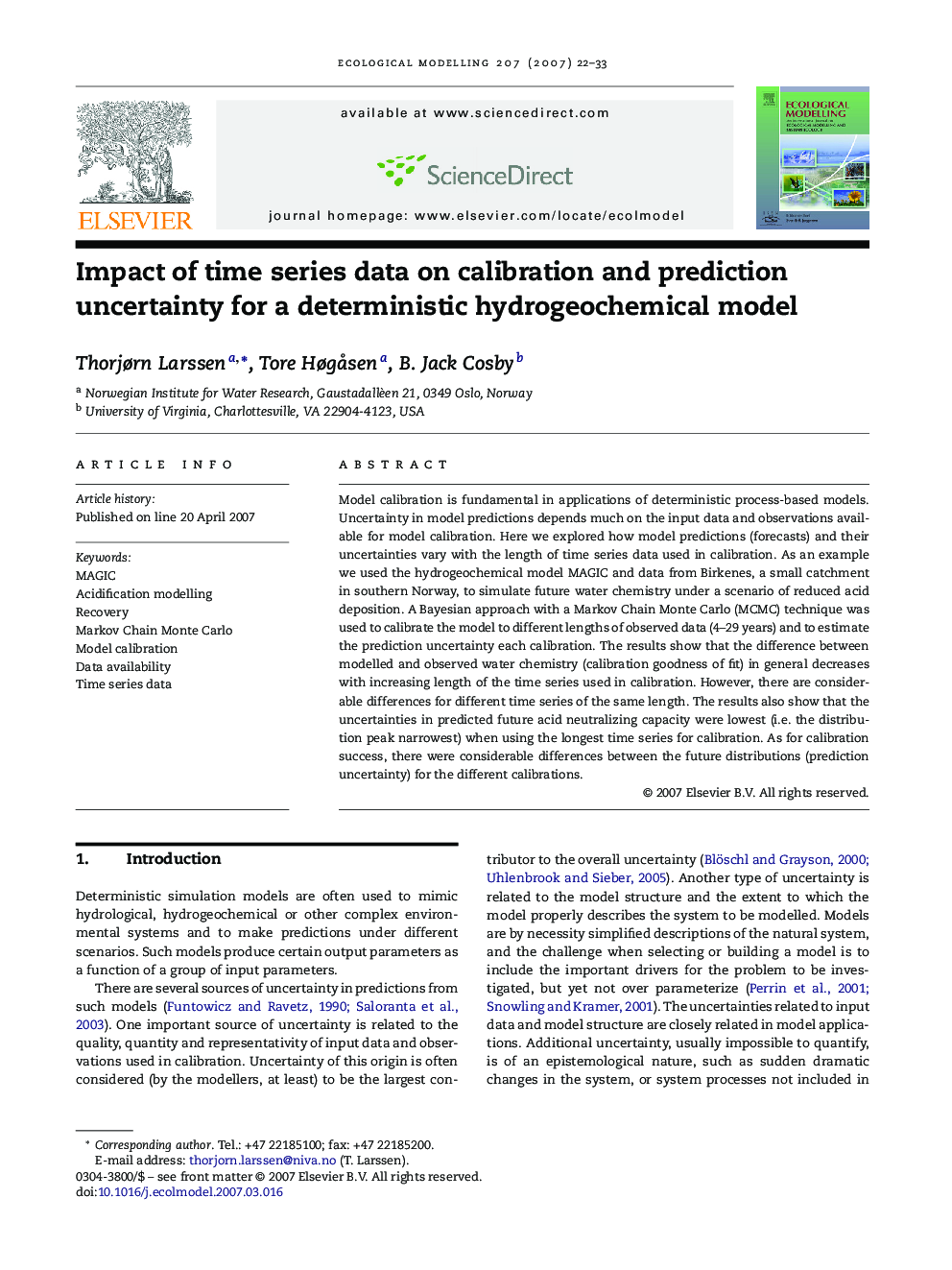| Article ID | Journal | Published Year | Pages | File Type |
|---|---|---|---|---|
| 4378591 | Ecological Modelling | 2007 | 12 Pages |
Abstract
Model calibration is fundamental in applications of deterministic process-based models. Uncertainty in model predictions depends much on the input data and observations available for model calibration. Here we explored how model predictions (forecasts) and their uncertainties vary with the length of time series data used in calibration. As an example we used the hydrogeochemical model MAGIC and data from Birkenes, a small catchment in southern Norway, to simulate future water chemistry under a scenario of reduced acid deposition. A Bayesian approach with a Markov Chain Monte Carlo (MCMC) technique was used to calibrate the model to different lengths of observed data (4-29 years) and to estimate the prediction uncertainty each calibration. The results show that the difference between modelled and observed water chemistry (calibration goodness of fit) in general decreases with increasing length of the time series used in calibration. However, there are considerable differences for different time series of the same length. The results also show that the uncertainties in predicted future acid neutralizing capacity were lowest (i.e. the distribution peak narrowest) when using the longest time series for calibration. As for calibration success, there were considerable differences between the future distributions (prediction uncertainty) for the different calibrations.
Related Topics
Life Sciences
Agricultural and Biological Sciences
Ecology, Evolution, Behavior and Systematics
Authors
Thorjørn Larssen, Tore Høgåsen, B. Jack Cosby,
